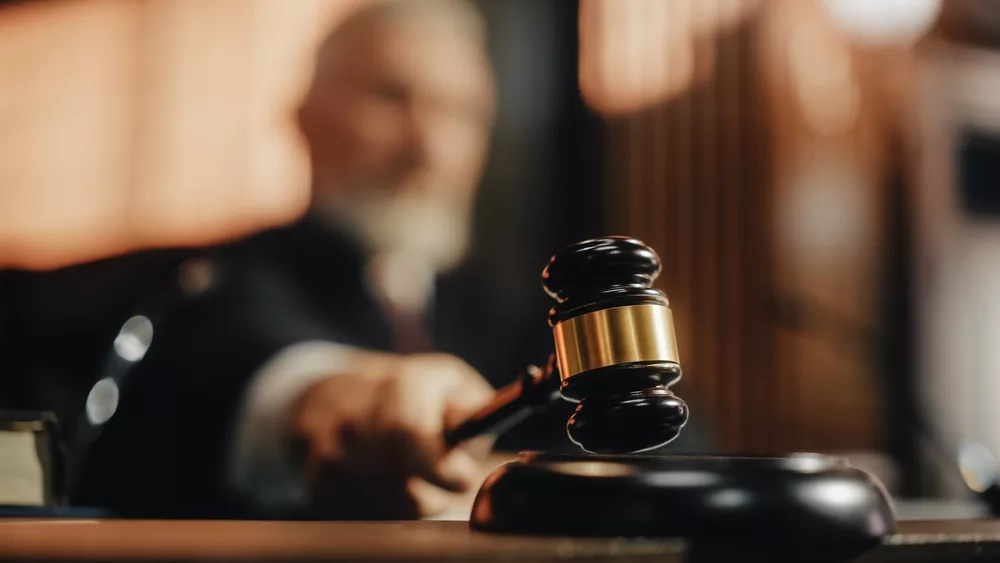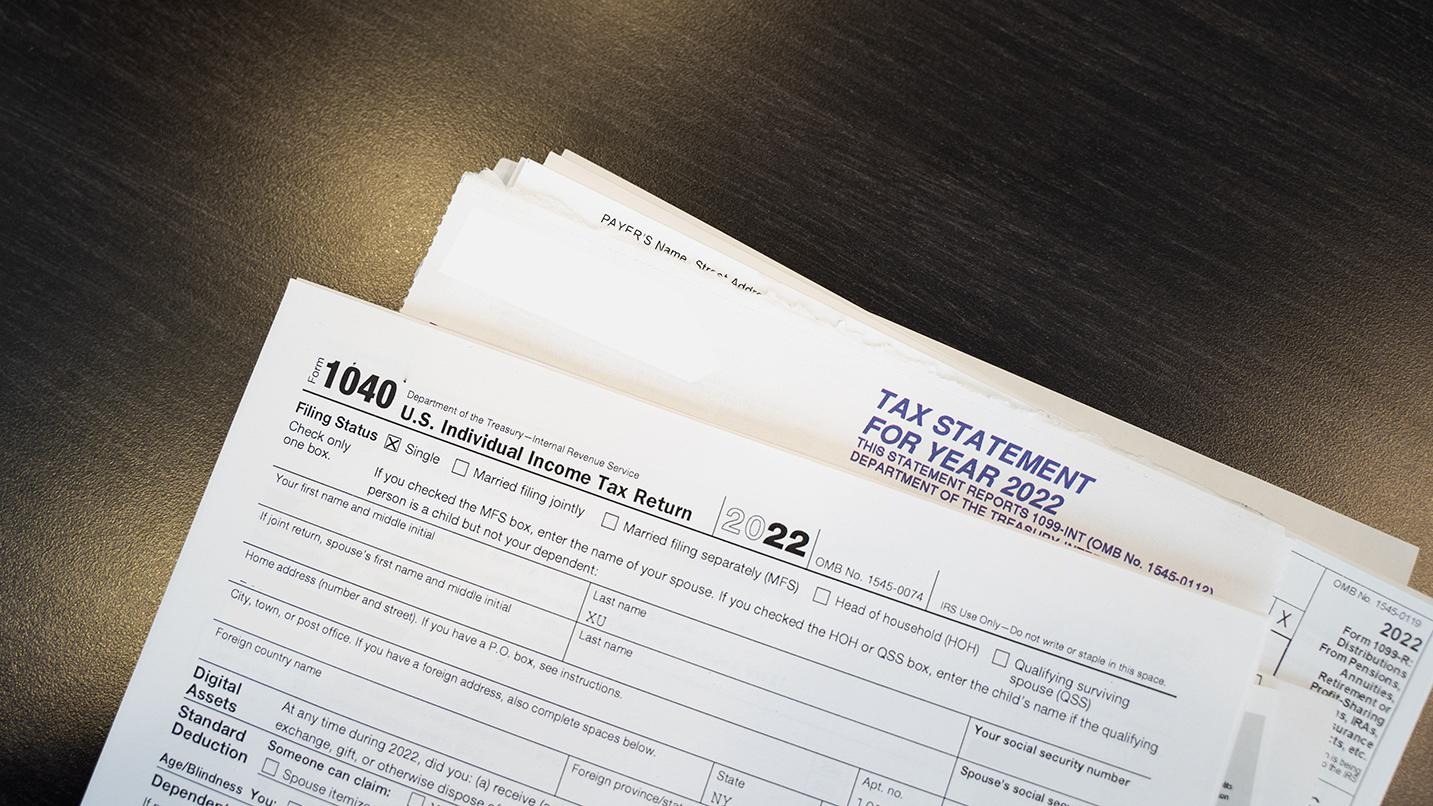Following Monday’s unprecedented Supreme Court decision giving the Trump administration permission to temporarily enforce the Alien Enemies Act of 1798, the ACLU has filed a lawsuit — a habeas petition— challenging President Donald Trump, which is set to be heard today at 10 a.m at the Daniel Patrick Moynihan courthouse of the Southern District of New York in Manhattan.
U.S. District Court Judge Alvin K. Hellerstein will hear the lawsuit challenging President Trump’s use of the act to deport migrants held in New York. He has temporarily barred the government from removing or transferring the two plaintiffs in the lawsuit out of his district ahead of the hearing.
The new ACLU petition focuses on two Venezuelan men held in Goshen, New York. One is a 21-year-old gay man who fled threats from Tren de Aragua. The other is a 32-year-old political dissident who protested Venezuela’s President Nicolás Maduro. The ACLU is also seeking a broader order to stop deportations of people in similar situations nationwide.
The ACLU’s habeas petition comes as Monday’s Supreme Court decision dismissed the ACLU’s initial lawsuit that challenged the Trump administration’s use of the Alien Enemies Act. The ACLU’s claims were initially filed in D.C. under the Administrative Procedure Act, but the Trump administration argued the claims should have been brought as habeas petitions in the district where the plaintiffs are detained: Texas. The Supreme Court agreed, ruling that such challenges must be filed as habeas petitions in the proper jurisdiction. As a result, the ACLU must restart the case in Texas — or wherever ACLU’s clients are — but can raise the same arguments. Two clients originally detained in Texas were later moved by immigration authorities to New York, hence why ACLU’s recent habeas petition was filed in New York.
While the Supreme Court’s Monday decision allows deportations to resume under the Alien Enemies Act, it did not rule on the law’s substance — only that the original case was filed in the wrong jurisdiction (Washington, D.C. instead of Texas). In the 5-4 decision, the Supreme Court said migrants must be notified and given a chance to appeal. The court’s ruling essentially says that the Trump administration cannot undermine people’s right to file habeas claims once they are notified that they are going to be deported under the Alien Enemies Act, Katherine Yon Ebright, a counsel in the Brennan Center for Justice’s liberty and national security program, told Documented.
When the Trump administration invoked the Alien Enemies Act on March 14, it only published the proclamation on March 15, allowing the administration to begin enforcing the proclamation almost immediately. Many lawyers were taken by surprise. Hundreds of migrants from Venezuela in the U.S. were then immediately put on a flight and deported to a prison in El Salvador, Centro de Confinamiento del Terrorismo (CECOT).
“Maybe they gave them notice of an hour or two hours — or something. They put them on the planes, then they shipped them off to El Salvador, right?” Ebright explained. “It would be very challenging, for an individual with so little notice to get in touch with a lawyer who’s going to file a habeas petition on their behalf.”
However, Ebright warned that even though the Supreme Court has said the government must give people enough time to file habeas petitions, there’s still a risk the administration could manipulate that requirement. She urged skepticism and vigilance, highlighting the risk of “gamesmanship” — the administration appearing to follow the rules while still making it nearly impossible for people to exercise their rights.
“There is a possibility that the administration will say it’s something like three or four days — that is still very challenging for people to connect with a lawyer — to file those habeas petitions,” Ebright said. “I think we need to take seriously the possibility that the administration is not going to give people an appropriate amount of time.” She added that there’s a concern the government could give notice in English to people who only speak Spanish, making it difficult for them to comprehend too. “I want to be clear that there is a possibility of gamesmanship even still, that the administration tries to define reasonable time in an unreasonable way, but the protection is not nothing,” Ebright said.
Dissenting justices warned the ruling still undermines due process. Justice Sonia Sotomayor, in a dissent, wrote that “conduct in this litigation poses an extraordinary threat to the rule of law.” Joining Sotomayor, Justice Ketanji Brown Jackson compared the court’s handling to Korematsu, the WWII case where the Supreme Court upheld Japanese imprisonment. “I lament that the court appears to have embarked on a new era of procedural variability, and that it has done so in such a casual, inequitable, and, in my view, inappropriate manner,” Jackson wrote in a separate dissent.
According to 60 Minutes, a majority of those deported under the act so far have no criminal record. When the media outlet looked into the people the Trump administration deported to a prison in El Salvador under questionable legal grounds, it found that 75% had no criminal record. Of those who did, most had only minor offenses, and just 3% had serious criminal histories. U.S. resident Kilmar Armando Abrego Garcia — a Maryland man mistakenly sent to a prison in El Salvador — was incorrectly removed due to a government error. And while the Justice Department has admitted the deportation was an “administrative error,” DOJ lawyers argued in court papers that he is a member of the criminal gang MS-13.
Also Read: Trump’s Unprecedented Use of the Alien Enemies Act: A Legal Expert Explains Why It Won’t Hold Up
This article was featured in Documented’s Early Arrival newsletter. You can subscribe to receive it in your inbox three times per week here.














